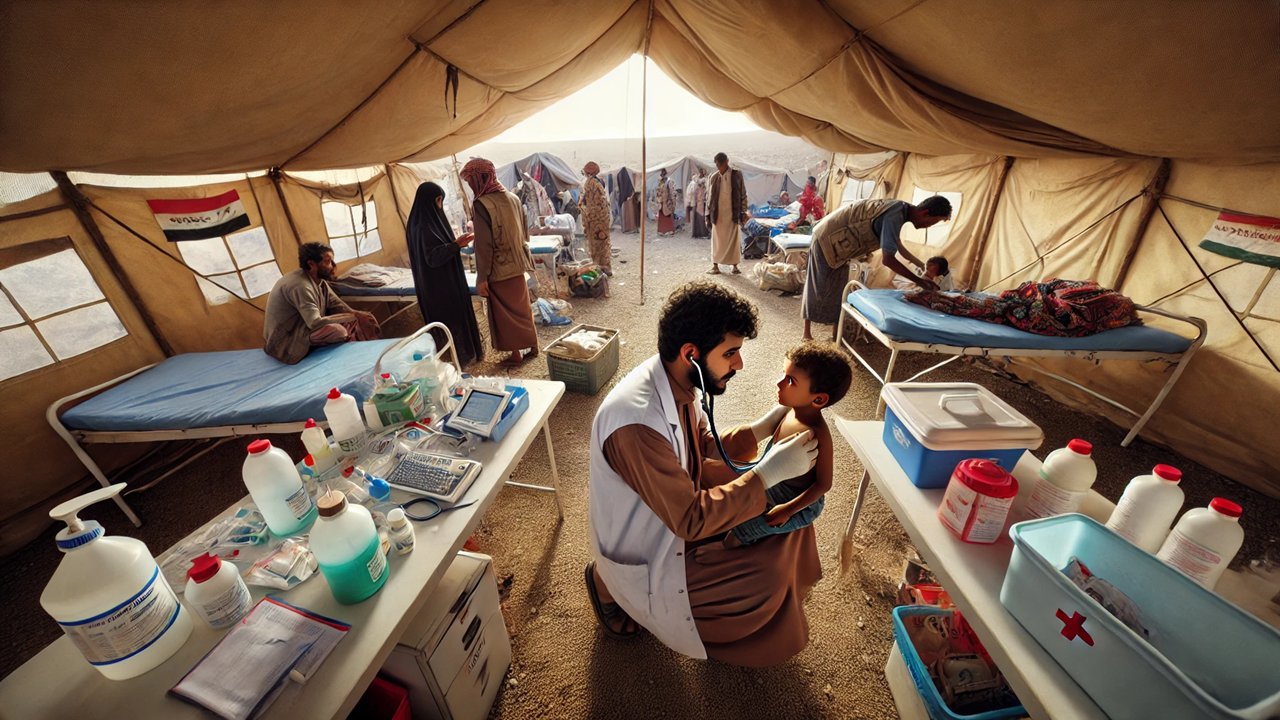UN warns of escalating conflict in Yemen amid humanitarian crisis, regional tensions
The crisis in Yemen, which worsened in 2014 after Houthi rebels (known officially as Ansar Allah) seized the capital, has been marked by complex political and military tensions.

Despite recent economic de-escalation agreements, Yemen remains at risk of a return to full-scale conflict, with continued fighting and increased rhetoric between the warring sides, the UN envoy for the country warned on Thursday.
The crisis in Yemen, which worsened in 2014 after Houthi rebels (known officially as Ansar Allah) seized the capital, has been marked by complex political and military tensions. More than 18 million people – half the country’s population – remain dependent on humanitarian assistance and protection.
Hans Grundberg, the UN Special Envoy for Yemen, told the Security Council that while violence remains below pre-2022 truce levels, clashes in regions like Hudaydah and Ta’iz continue to claim lives.
“The current dynamic is a stark reminder that the threat of a return to full-scale war remains ever-present,” he warned.
Regional tensions continue
Mr. Grundberg noted that the regional tensions from the war in Gaza continue to further complicate the crisis in Yemen.
Houthi attacks on vessels in the Red Sea have continued, threatening regional stability and international maritime security. In response the United States and the United Kingdom continue to strike military targets inside of Yemen.
“I reiterate my concern over this escalatory trajectory and repeat my call for the parties to put Yemen first and to prioritize a settlement of the conflict in Yemen,” he said.
Mr. Grundberg highlighted the recent targeting of the Greek-flagged oil tanker MV Sounion by Houthi forces, which risks triggering a catastrophic oil spill, warning of an environmental disaster for Yemen and the wider region.
Committed to resolving the crisis
Efforts to resolve the crisis remain ongoing, with the Special Envoy emphasizing the need for sustained dialogue and collaboration across conflict lines.
“Seek to use the 23 July understanding [on economic de-escalation] as a steppingstone to de-politicize the economy and shift the parties away from a zero-sum mindset to one of collaboration,” he said, underscoring the importance of continued engagement.
He also pointed to ongoing consultations with Yemeni civil society, including women, youth, and vulnerable groups, as part of a broader push for an inclusive peace process.
In conclusion, Mr. Grundberg affirmed his “unwavering determination” to engage with all parties and work towards a sustainable and comprehensive peace in Yemen.
No time to lose, to save lives
Also briefing the Security Council, Joyce Msuya, Acting Under-Secretary-General for Humanitarian Affairs, highlighted the severe hardship confronting Yemenis.
Over 62 per cent of households across the country do not have enough food, with some areas, such as Hudaydah and Ta’iz, experiencing extremely critical levels of malnutrition, she warned.
“By the end of 2024, more than 600,000 children in Government of Yemen-controlled areas are estimated to be acutely malnourished, and around 118,000 are projected to suffer from severe acute malnutrition – a 34 per cent increase since 2023,” she said.
“Time is of the essence if we are to prevent catastrophe.”
Response challenges
Ms. Msuya also expressed deep concern over the continued arbitrary detention of UN personnel and staff of non-governmental organizations (NGOs) by Houthi authorities, urging their immediate release and respect for humanitarian law.
Thirteen UN personnel were detained in June, with four more held since 2021 and 2023, lacking contact with their families and agencies.
She also rejected false allegations against UN and aid agencies and workers, warning such claims jeopardize safety and operations of humanitarian actors working to alleviate the suffering.
The senior UN relief official concluded her briefing, stressing that the humanitarian community is committed to staying and delivering in Yemen – “as best it can, for as long as it takes.”
“To do this, we need the parties to respect international humanitarian law – by immediately releasing our detained colleagues, protecting civilians and humanitarian workers, and facilitating unimpeded humanitarian access.” Visit UN News for more.
- READ MORE ON:
- Yemen
- Hans Grundberg










